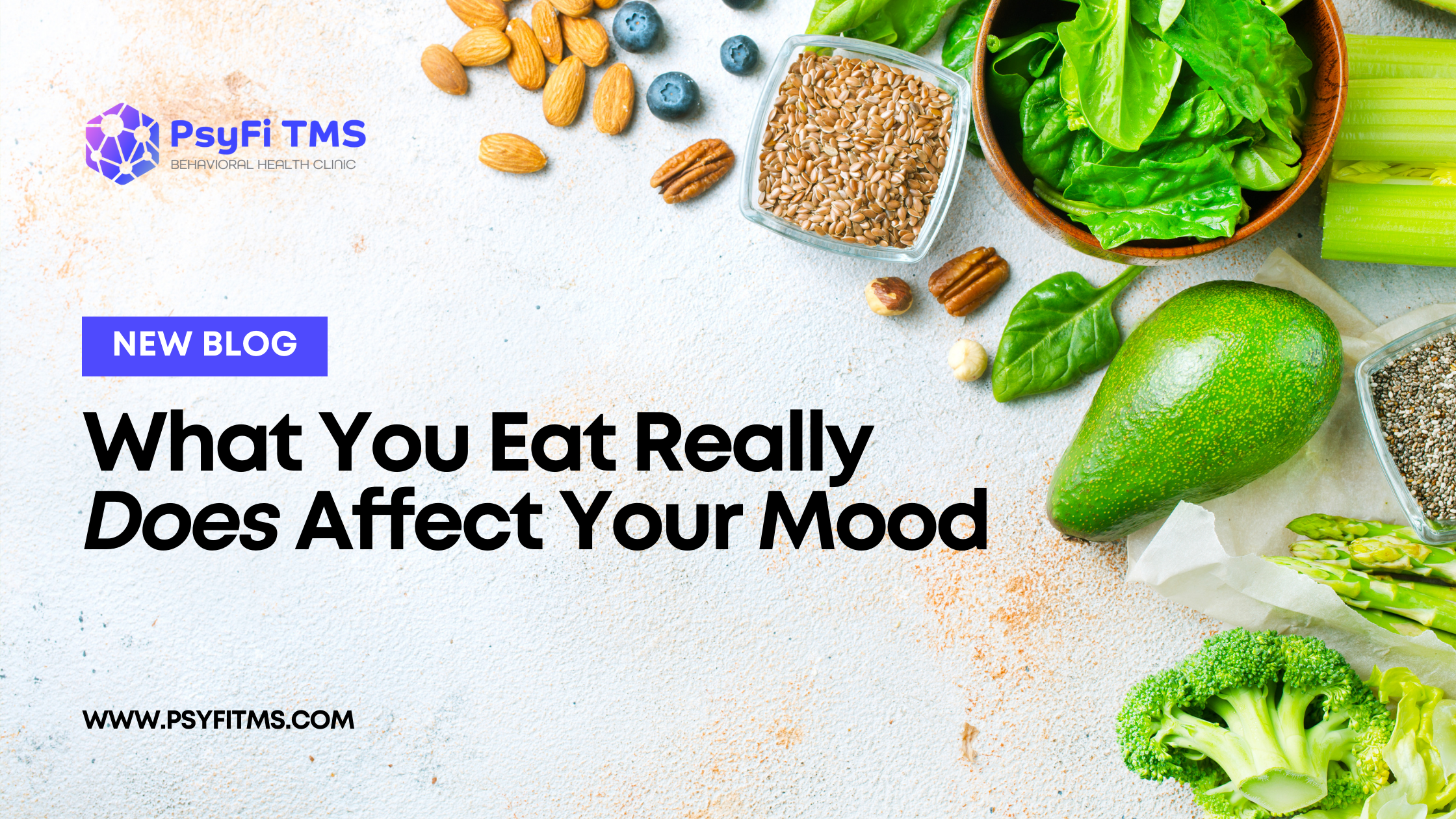Have you ever noticed that on some days you feel energized, clear-headed, and positive, while other days you feel sluggish, foggy, and just “off”? What you eat plays a huge role in how you feel both mentally and physically. The foods you put into your body either provide your brain the nutrients it needs to function optimally or lead to blood sugar and energy crashes that can plummet your mood.
The Brain-Gut Connection
The gut helps regulate much more than just digestion and metabolism. There is a strong connection between the gut and the brain, called the gut-brain axis. The gut produces many neurotransmitters, like serotonin, dopamine, and norepinephrine, that communicate with the brain and impact your moods and emotions. An unhealthy gut environment can lead to inflammation, impair nutrient absorption, and alter neurotransmitter production, which generates symptoms like brain fog, anxiety, depression, and more.
Foods that Boost Your Mood
Focusing on eating more whole, unprocessed foods full of brain-supporting nutrients is key for balanced moods and energy levels. Here are some of the top mood-boosting foods to work into your diet:
- Fatty fish like salmon, mackerel, sardines, and herring are rich sources of anti-inflammatory omega-3 fatty acids DHA and EPA, which play a role in producing neurotransmitters like serotonin.
- Leafy greens like spinach and kale provide folate, a B vitamin that helps regulate neurotransmitters. Low levels of folate are linked to depressive symptoms.
- Walnuts offer plant-based omega-3s called ALA and are high in mood-supporting magnesium.
- Avocados contain the antioxidant glutathione, which helps lower inflammation and cortisol levels.
- Turkey, chicken, eggs, beans, and lentils are solid protein sources that help stabilize blood sugar and energy levels.
- Berries deliver antioxidants that protect brain cells from damage that can impact mood regulation.
Foods that Drag Down Your Mood
On the flip side, there are many common foods that can negatively impact mood by spiking and crashing blood sugar, increasing inflammation, and disturbing gut health. Here are some of the top foods to limit for steady, positive moods:
- Added sugars – Found in sweets, soda, juice, condiments, and packaged snacks, added sugar causes spikes and crashes in blood glucose and energy.
- Refined grains – Found in white bread, pasta, cereals, and baked goods, refined grains digest quickly and can spike blood sugar.
- Fried and processed foods – These contain inflammatory fats and compounds that increase oxidative stress and neuroinflammation.
- Alcohol – While it might boost mood short-term, alcohol is a nervous system depressant and can increase anxiety and depression.
The Gut-Brain-Food Trifecta
Optimizing your diet, gut health, and brain/mood go hand-in-hand. Following an anti-inflammatory diet rich in mood-supporting nutrients while also addressing any underlying gut issues is key for balanced moods and emotions long-term. If you struggle with anxiety, depression, brain fog, fatigue, or other mood issues, it’s important to work with a functional medicine practitioner to identify and correct any gut dysfunctions, nutrient deficiencies, or food sensitivities you may have.
Getting to the Root with TMS
In some cases, mood imbalances like depression and anxiety have roots that extend beyond diet and lifestyle. Transcranial magnetic stimulation (TMS) is an innovative technology that treats mood disorders by activating and balancing underactive regions of the brain with electromagnetic pulses. TMS is non-invasive, drug-free, and has little to no side effects.
During TMS therapy, electromagnetic coils are placed near the scalp to deliver targeted magnetic pulses that stimulate mood-regulating areas of the brain. It works to recalibrate neurotransmitter activity, reduce inflammation, improve nerve cell connections, and restore optimal function in mood-related brain regions. Numerous studies confirm TMS provides safe, effective relief for stubborn cases of anxiety, depression, and OCD.
Rather than just temporarily masking symptoms with medication, TMS technology targets the root causes of mood disorders and provides lasting relief, even in treatment-resistant cases. It’s an ideal option for those looking to get to the bottom of emotional imbalances without drugs.
If you’ve struggled to overcome anxiety, depression, or other mood disorders with diet, lifestyle, supplements, therapy, or medication alone, it may be time to explore TMS treatment. Get in touch with us at info@psyfitms.com to learn more about our TMS treatment and if it’s the right fit for you.

